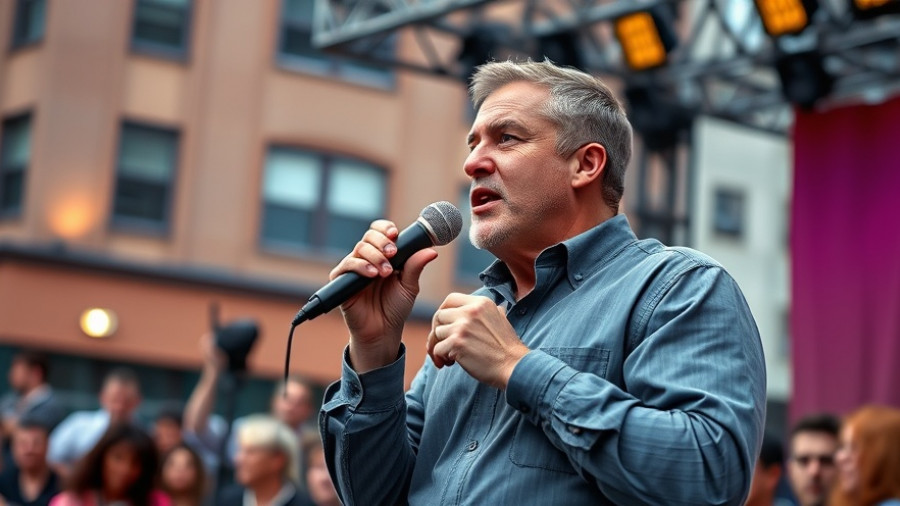
Why the National Guard's Role Is Misunderstood
As the prospect of deploying the National Guard to San Francisco generates mixed reactions from residents and officials alike, it's essential to grasp what this means for the city's ongoing struggles with drug-related issues. Mayor Daniel Lurie raised crucial points, stating, "the National Guard does not have the authority to arrest drug dealers, and sending them to San Francisco will do nothing to get fentanyl off the streets or make our city safer." This sentiment echoes the frustrations of many locals who believe enforcement needs to be strategic and community-focused rather than merely symbolic.
Local Voices Demand a Better Approach
The Mayor's call for cooperation with established law enforcement agencies like the FBI, DEA, and ATF emphasizes that real progress requires coordination, intelligence-sharing, and specialized tactics beyond military intervention. Residents are increasingly vocal about wanting tangible solutions to the drug crisis affecting the Bay Area, rather than a blunt show of force that can't address the core issues at play.
Understanding the Bigger Picture: The Drug Crisis in the Bay Area
The fentanyl crisis isn’t just a local issue but reflects a national epidemic that communities across America are grappling with. San Francisco, often in the spotlight for its progressive policies and vibrant culture, has been deeply affected by this crisis, with overdose rates escalating alarmingly over the past few years. Despite the complexities surrounding addiction and public health, many residents feel that the National Guard's involvement might merely distract from meaningful support, emphasizing moral and sociological solutions over militarization.
What Does This Mean for Community Engagement?
Community engagement stands at the forefront of any efforts to tackle the drug issue effectively. Local initiatives like addiction recovery programs and outreach efforts led by nonprofits are not just vital; they are the backbone of any revitalization strategy. By forging stronger connections among social services, health facilities, and local law enforcement, residents advocate for a united front that prioritizes human connection over punitive measures.
Common Misconceptions and Myths About Military Intervention
Among the misconceptions surrounding the deployment of military forces like the National Guard in civilian spaces is the belief that this can quickly resolve increasing drug offenses. However, many studies indicate that militarized responses can escalate tensions without addressing the underlying causes of addiction, homelessness, and poverty that contribute to drug-related crime. Understanding this dynamic is crucial for crafting informed policies that prioritize the well-being and safety of all community members.
A Call for Compassionate Solutions
As Mayor Lurie emphasized, the focus should not be on military presence but rather on intelligent enforcement strategies complemented by community support initiatives. There’s a critical need for resources dedicated to mental health support, addiction treatment, and safe spaces for recovery. Listening to community narratives and providing avenues for healing and assistance can build healthier neighborhoods, reflecting a city that values compassion and cooperation over force. This is the heart of San Francisco's unique spirit – a thriving metropolis that embraces diversity and humanity even during challenging times.
Next Steps for Engaged Citizens
For residents keen on contributing to this narrative, engaging with local councils, supporting grassroots organizations, and participating in community forums is paramount. As San Francisco navigates these tumultuous waters, the voices of the community will be instrumental in steering the ship towards a brighter, healthier future.
Being proactive in these discussions is essential, as they shape the future of our beloved city. As Mayor Lurie and other officials seek effective paths forward, community awareness and involvement will ultimately determine our collective resilience.
 Add Row
Add Row  Add
Add 



Write A Comment